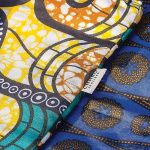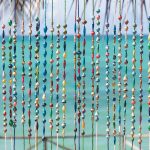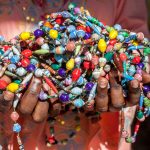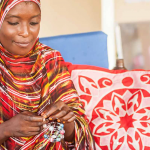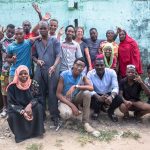In this post I will present a profile of one of the participants in the Prof E Sus pilot course, ‘Discovering a Sustainable Mindset’.
In this interview I talk with Christine Atkinson who is based in Zanzibar and who is now General Manager at Chako, a sustainable social enterprise. The audio is below. And below that is a rough transcript.
Main points:
- Christine found the course relevant to her personally, wherever she might be based in the world
- She attributes her new job partly to doing the Prof E Sus course!
- She found the practical tasks of the online section of the course fun to do, as did her family.
- Doing the course made her research sustainable options in her local area.
- She has plans for developing in her new job so that Chako is even more sustainable than it already is (futures thinking!)
Transcript (created using Speech to text)
C: My name is Christine Atkinson. I am an American who has found a second home in Zanzibar so I live in Zanzibar Tanzania.
A: So what brings us together here in Finland is the fact that we’re both involved in a course for teachers to help them to uncover the sustainability skills in their students. Coming from Zanzibar why did you sign up to the course? What’s the attitude to sustainability there?
C: Well I signed up for the course because there is a need for a mind shift in Zanzibar. Ffrankly people aren’t very sustainable in some ways but in others they are very sustainable so in their day to day life but when it comes to properly using resources and disposing of waste and yeah just using sustainable practices within the tourism industry and teaching it in schools it there is a disconnect but yet you see people in their daily life re-using products, re- using waste in a productive way such as re-using plastic bottles for making juice or you know storing other things or Yeah they definitely user their clothes a long time they aren’t you know it’s not this over consumption that you see in the US for example, people aren’t you know buying a lot of new things and so they definitely there’s a lot of we call them boondies, various technicians that repair everything and anything so if something breaks so there’s always a way to fix it and I love that so there are some good things but I so I wanted to expand my mind and my knowledge base in terms of how I could possibly bring this concept to Zanzibar but also I now that I’ve been in this course I see that it transfers worldwide you know I mean so I know it’s something that I’ll use no matter where I go in the world.
A: There’s one practical detail which I’m really interested in and which is that you did a session with the staff. And you said you had to have a translator and I’m wondering what’s it like doing a training session where you’re doing it through a translator. What languages were involved?
C: So the native language of Zanzibar is Swahili and I am by no means fluent in Swahili my native language obviously is English and I speak some Swahili but any of my training is done in my native languages. done in English so I’m yeah it definitely it takes like double the time when you’re doing a training and it’s being translated but then there’s this thought as a trainer like well is the message that I’m trying to convey really being conveyed by the translators so you hope that there’s no gap there that it’s because for English we are very proper and everything you know is full complete sentences and so forth And perhaps in Swahili there aren’t always the same words It’s not a literal translation of every single word in English so yeah it can be a little difficult but so I think you have to find ways in terms of evaluation you know to really make sure that your message has hit home and that you were really successful in what you want to convey.
I guess as I’ve been part of this class and a and a challenge that we that we had to do through the course was a zero waste activity. And. I loved that activity, my family really enjoyed it as well but it really kind of brought up a big conundrum for me in terms of okay I’m trying not to have waste but what do I do with this waste so honestly I didn’t know where I could take my plastic or where I could take any cans that I might have had or Old electronics that aren’t working and so since then I have been able to to find some sources but they still I still don’t know everything and so there is a gap anything in knowledge there in Zanzibar. Now I know I’m not alone so you know it think that there is a problem in terms of. Awareness of where can you take these items and how can you do it.
C: So I actually want to attribute my new job in some ways to this Prof E Sus course that we are in because. We had to develop a lesson plan and I am not a teacher and so I needed to find a location to give my lesson and so I went to a workshop on green entrepreneurship and this business Chako was a presenter it is a fairly new business but they’ve been actually around for about eight years Its a local business and then I kind of got an email that they were looking to hire for a general manager and so I applied for that position. I told them about this class that I was taking and you know that I would really love to put some of this into practice and I felt that I could really help propel their business forward in terms of sustainability. And so I got hired. so I’m now the general manager for Chako which was founded in 2010 by. A couple, a woman from. Holland and. Her husband is Zanzibari so and it’s a wonderful social enterprise that really just incorporates everything that I value and that is important to me and I think that it makes a huge impact on the island so they had a vision where they saw all the waste that the tourism industry was starting to bring to Zanzibar but then in addition to that they see, Zanzibar is also an island of poverty and so they saw all the unemployed youth that may be overlooked for employment due to lack of education and sometimes it’s just also lack of opportunity as well as the women. Women aren’t always given opportunity in Zanzibar because it’s been traditionally a patriarchal society so Chako focuses on combining both of those that is the mission of Chako is to help to reduce the waste in Zan but also providing opportunity and empowering youth and women and so it’s a really fantastic business that works on upcycling the waste and teaching these young people new skills. So the waste that we focus on is glass and paper as well as dow materials.
The gallery of images below shows the Chako team including Christine as well as some of their upcycled products.
Music on the recording: LArgent appelle largent by Pamelo Mounka is licensed under a Attribution-Noncommercial-Share Alike 3.0 United States License.
![]()


